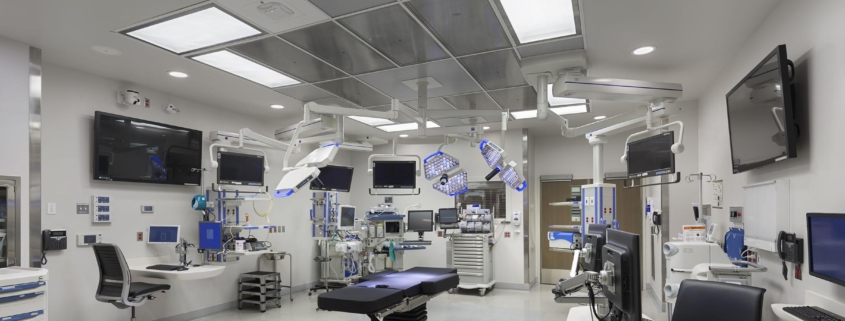7 Essential Steps to Prepare for MSK Surgery Success
7 Essential Steps to Prepare for MSK Surgery Success: Your Guide to a Smooth Recovery
Preparing for musculoskeletal (MSK) surgery can feel overwhelming, but it doesn’t have to be. Whether you’re facing a knee replacement, shoulder repair, or spinal surgery, taking the right steps before your procedure can significantly impact your recovery and overall success. In this listicle, we’ll explore seven essential steps that will empower you with the knowledge and tools needed to navigate this journey with confidence. From understanding the importance of preoperative assessments to the benefits of physical preparation, you will gain valuable insights that can help ensure a smoother surgical experience and a more effective recovery. Let’s dive in and set the stage for your MSK surgery success!
1) Understand Your Procedure: Take the time to research your specific musculoskeletal (MSK) surgery. Familiarize yourself with the steps involved, the expected recovery process, and potential risks. Knowledge is power, and being informed will help alleviate anxiety and prepare you mentally
Before stepping into the surgical arena, it’s crucial to arm yourself with knowledge about your upcoming procedure. Researching your specific musculoskeletal surgery can provide clarity and ease the tension that often accompanies such significant medical interventions. Start by exploring the various steps involved in the surgery, as understanding the process can demystify the experience. Knowing what to expect can make the day of the surgery feel less daunting. Additionally, familiarize yourself with the expected recovery timeline, including any necessary rehabilitation or physical therapy that may follow. This foresight allows you to mentally prepare for the journey ahead.
Moreover, it’s essential to be aware of the potential risks associated with your surgery. While every procedure comes with its own set of challenges, understanding these risks can help you and your healthcare team develop a proactive approach to your care. Consider creating a list of questions to ask your surgeon during your pre-operative consultations. This list can include inquiries about post-operative care, pain management strategies, and any lifestyle changes you may need to adopt during recovery. By taking these steps, you empower yourself with the information needed to navigate your surgical experience with confidence.
2) Preoperative Health Assessment: Schedule a comprehensive preoperative evaluation with your healthcare team. This may include blood tests, imaging studies, and discussions about your medical history. Addressing any underlying health issues will help ensure a smoother surgical experience and recovery
Before undergoing any surgical procedure, it’s crucial to undergo a thorough preoperative evaluation with your healthcare team. This step not only prepares you physically but also mentally for the journey ahead. During this assessment, you can expect a combination of blood tests, imaging studies, and a detailed discussion regarding your medical history. These components work together to identify any potential risks or underlying health issues that may affect your surgery. By addressing these concerns proactively, you can significantly enhance your chances of a smooth surgical experience and a quicker recovery.
Additionally, it’s important to communicate openly with your healthcare providers about any medications you are currently taking, allergies, and previous surgeries. This information is vital for tailoring your surgical plan to fit your unique health profile. Here’s a quick reference table summarizing the key components of a comprehensive preoperative evaluation:
| Evaluation Component | Description |
|---|---|
| Blood Tests | Assess overall health and detect any underlying conditions. |
| Imaging Studies | Provide detailed views of the surgical area for better planning. |
| Medical History Review | Identify previous health issues and surgeries that may impact recovery. |
3) Optimize Your Nutrition: Fuel your body with a balanced diet rich in vitamins and minerals leading up to your surgery. Proper nutrition can enhance your immune system, promote healing, and improve your overall physical condition, setting the stage for a successful outcome
As you prepare for your upcoming surgery, it’s crucial to focus on nourishing your body with a variety of nutrient-dense foods. A balanced diet can significantly impact your recovery, so consider incorporating the following elements into your meals:
- Fruits and Vegetables: Aim for a colorful plate filled with antioxidants, vitamins, and minerals. Foods like berries, leafy greens, and citrus fruits can help strengthen your immune system.
- Lean Proteins: Incorporate sources such as chicken, fish, beans, and legumes to support tissue repair and muscle maintenance.
- Whole Grains: Choose whole grains like brown rice, quinoa, and whole wheat bread for sustained energy and fiber, which aids digestion.
- Healthy Fats: Include avocados, nuts, and olive oil in your diet to promote heart health and reduce inflammation.
To further enhance your nutritional strategy, consider the following table that highlights key vitamins and minerals beneficial for pre-surgery preparation:
| Vitamin/Mineral | Benefits | Food Sources |
|---|---|---|
| Vitamin C | Boosts immune function and aids in wound healing | Citrus fruits, bell peppers, strawberries |
| Vitamin D | Supports bone health and immune response | Fatty fish, fortified dairy, sunlight |
| Zinc | Promotes healing and immune function | Meat, shellfish, legumes, seeds |
By prioritizing these nutritional choices, you not only prepare your body for surgery but also lay the groundwork for a smoother recovery process. Remember, every meal is an opportunity to fuel your body with the essential nutrients it needs to thrive.
4) Arrange Support: Coordinate with family or friends to have a support system in place post-surgery. Whether it’s help with daily tasks, transportation to follow-up appointments, or simply emotional support, having a reliable network can significantly ease your recovery process
After undergoing surgery, the importance of having a solid support system cannot be overstated. Coordinating with family and friends to create a network that can assist you during your recovery will make a significant difference in your healing journey. Consider reaching out to those who can help with various aspects of your daily life. Here are some key areas where support can be invaluable:
- Daily Tasks: Whether it’s cooking meals, cleaning, or running errands, having someone to share these responsibilities can alleviate stress and allow you to focus on your recovery.
- Transportation: Arrange for friends or family to take you to follow-up appointments, physical therapy sessions, or even just for a change of scenery. This not only ensures you don’t miss important appointments but also provides companionship.
- Emotional Support: Recovery can be a challenging emotional journey. Having someone to talk to, share your feelings with, or simply sit in silence can help you feel less isolated during this time.
To effectively coordinate your support system, consider creating a simple schedule or table that outlines who can help and when. This will ensure that you have consistent assistance without overwhelming any one person. Here’s a sample layout:
| Day | Support Person | Task |
|---|---|---|
| Monday | Jane | Grocery shopping & meal prep |
| Wednesday | Mark | Transportation to follow-up appointment |
| Friday | Lisa | House cleaning |
By establishing a clear plan and communicating your needs, you can foster a supportive environment that not only aids in your physical recovery but also enhances your emotional well-being during this pivotal time.
5) Prepare Your Home: Create a comfortable and safe environment for your recovery. This may involve decluttering spaces, setting up a recovery station with essentials within reach, and ensuring that your home is equipped for any mobility limitations you may experience after surgery
Creating a nurturing space at home is essential for a smooth recovery after MSK surgery. Start by decluttering your living areas to eliminate any potential hazards that could impede your mobility. Remove unnecessary furniture, loose rugs, or any items that could cause tripping. Consider organizing your belongings into designated zones, making it easy to navigate your home without added stress. A well-organized environment not only promotes safety but also helps in fostering a sense of calm during your recovery.
Next, set up a dedicated recovery station that includes all the essentials you may need within arm’s reach. This could include a comfortable chair, pillows for support, and a side table stocked with items such as medications, water, snacks, and entertainment options like books or a tablet. Additionally, ensure that your bathroom and kitchen are equipped with necessary adaptations, such as grab bars and non-slip mats, to accommodate any temporary mobility limitations. Here’s a simple table to help you visualize what to include in your recovery station:
| Essential Items | Purpose |
|---|---|
| Medications | For pain management and recovery support |
| Water Bottle | Stay hydrated easily |
| Snacks | Quick energy boosts |
| Pillows | For comfort and support |
| Entertainment | To keep your spirits up |
Final Thoughts
preparing for MSK surgery is a journey that requires careful planning, informed decisions, and a proactive mindset. By following these seven essential steps, you’re not just setting the stage for a successful procedure; you’re also empowering yourself to embrace the recovery process with confidence. Remember, each step you take is a building block toward reclaiming your mobility and enhancing your quality of life. As you embark on this path, trust in the expertise of your healthcare team, stay informed, and listen to your body. Here’s to a successful surgery and a brighter, more active future ahead!










Leave a Reply
Want to join the discussion?Feel free to contribute!